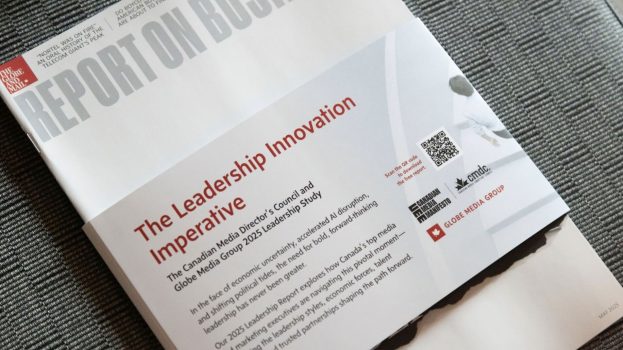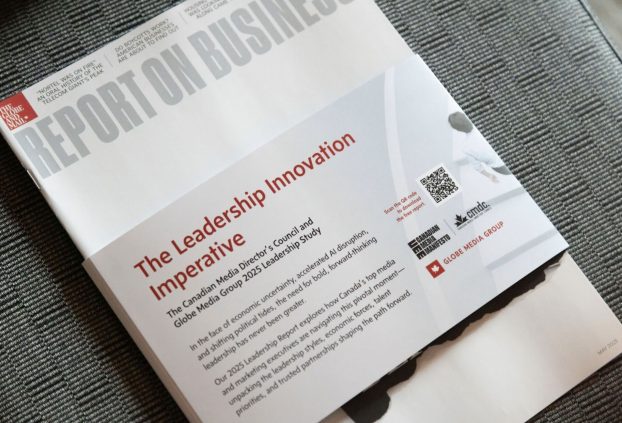Canadian companies with high ambitions of expanding into big new nafta markets may be in for some hard lessons in the days ahead.
If past experience is any judge, it could be like being called up from the minors to play in the pennant race. If you are not ready to play some pretty aggressive hardball, you will get left on the bench.
Of course, there is a good chance you will not have to worry about nafta at all.
If we get a change of government, or even more likely, the u.s. gets a new president, the deal may be seen as the Great Mistake many of us believe it is.
But if it goes through, we may be in for a rough ride.
And it is not the usual management problems that will do it; foreign sales staff, distribution channels, warehousing, customer service and the rest. Those are the easy ones.
The real challenge lies in communications. The newspaper, television, telemarketing and other communications the Americans still like to call advertising.
Advertising is not only singularly elusive and hard for management to get a grip on. In the major leagues, it is also the key to success or failure.
The multinationals (read: Americans who dominate foreign markets) know this. They are the people who coined the phrase, ‘It pays to advertise.’
But for Canadian companies, used to playing by Canadian rules, there are three profound reasons for concern.
The Americans have another favorite saying: ‘No guts, no glory.’ Slightly offensive to Canadian ears, it still sums up the problem neatly. As advertisers, most of us do not have the guts.
The first place we fall short is in the content of our advertising. The creative message.
We do not have the style and flair, the sheer daring of the Americans. How many Canadian advertisers (excluding those branch plants that use their u.s. advertising) would approve a campaign that read, ‘You’ve got the right one, baby’?
Uh-huh. Not many. Or how many would base the fate of their footwear business on a line that told customers to ‘Just do it’?
Most Canadian advertising, like the senior executives who approve it, is dignified, conservative and, oh, just slightly boring. And that will not get us far in nafta’s new markets.
The second place we lack courage is in facing the cost of advertising.
Americans are happy spending money on advertising, millions of dollars, because they know it pays off.
They think nothing of buying full-page newspaper ads (The Globe and Mail’s Report on Business section: $35,000 a pop), two-page spreads, or full-color ads to make an impact.
(Have you noticed how the ads in the rob are getting bigger in recent years with the signing of the free trade agreement between Canada and the u.s.?)
Canadian advertisers, with some notable exceptions, think it is a sign of good management to spend as little as possible on this ‘necessary evil.’ And this often ensures that what they do spend is just a waste of money. No guts.
The third place we lack business courage is in waiting for results.
If you are going into Dallas or Boston or Mexico City looking for new markets, it is going to take time for your advertising story to sink in.
Nobody out there has ever heard of you. They do not know who you are, what you do, or why they should buy from you. And unfortunately, getting your story across takes a lot of time – and money.
American advertisers know this. They are ready to spend, and to keep on spending, until their story gets across.
You can be sure they will be running just as heavy schedules in Mexico City and Vera Cruz as they are in Toronto and Montreal, and their reasoning is simple: in communications, repetition is the secret of success.
As Canadians, we have big problems with this cost of repetition in advertising – maybe because we do not really believe in it.
We are great at finding reasons to cut back, or change our tune, or take a hiatus (look how we have slashed communications budgets in this recession.)
But cutting back in a new market can be like cutting your own throat. Especially if you are up against the clout and chutzpah of a smart multinational competitor.
And it is no help to say: ‘Well, the Americans are bigger than we are, there’s no way we can match them.’
The fact is, big u.s. companies were once little u.s. companies who were willing to take risks, willing to go for broke, willing to spend big to win big. The big question is whether we are.
Bob Neighbour is a partner in Miller Neighbour & Associates, a Toronto-based communications firm with offices in Nice, France.























